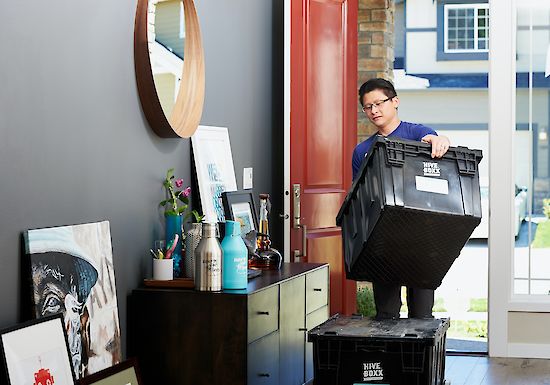
House Hunting? Consider These Mistakes That Could Cost You
When purchasing a new home in a competitive market, it can be tempting to put in an offer sooner than you may be comfortable. But here’s a reminder to ask questions, turn on all the faucets, flush the toilet, and crank down the air conditioning to see what you’re getting into after you sign the paperwork.
Here’s what to consider before you buy your next home.
1. WHAT ARE YOUR SENSES TELLING YOU?
When touring potential homes, it’s easy to consider what we see – the beautiful view outside the backyard, the gorgeous brick on the front of the house, or the ugly paint color you can’t wait to cover up.
But what about your other senses? Is there a train whistle that goes by every morning at 4am? If the previous owners had a dog, put your nose near the carpet. Does it smell like urine? Are you going to want hardwood floors throughout the house, or do you want the soft cushion of carpeting on cold winter mornings in your bedroom?
Engage all of the senses when house hunting because once moved in, all are impacted, positively or negatively.
2. CALL ON THE PROFESSIONALS
Who needs to be a part of your buying process, and how will you do your homework? Although a real estate agent, home inspector, or lawyer costs money, this is an investment in your future. If you’re not qualified to tackle every aspect of the buying process, it may be worth spending a little today to avoid a potentially big issue tomorrow.
3. DON’T FALL IN LOVE JUST YET
It may be tempting when looking for a new home, but don’t shop with your heart. The process can be fun, and with the professional staging done in many homes on the market, it can be enticing to leap before you should.
Remember to shop with your mind and stay within your budget. Avoid homes beyond that number so you don’t set yourself up for disappointment.
4. KNOW WHAT YOU CAN AFFORD TODAY AND INTO THE FUTURE
Your prequalification amount may come in higher than you expected and maybe more than you are comfortable or willing to pay. Remember, it doesn’t matter the size of the loan you can obtain. The bank, the real estate agents, and the loan officer can tell you one thing, but it’s ultimately up to you. After all, you will live with the monthly payments after the purchase, no one else.
And consider the expenses you might have in the future. Will you have kids? When will you need a new car? Make sure your mortgage leaves you with some cushion for the changes you may experience in life.
5. DOES YOUR NEW HOME FIT YOUR LIFE?
Maybe you’re dreaming of a fixer-upper house with a big backyard and flower gardens. But does that really fit your life? With a busy career and kids, you may not have the time at night and on weekends to work in the yard. And do you even have the skillset to tackle home renovation projects?
Visualize living in your home. Does it fit your real life or a romantic version of the life you want to lead? It’s important to ask yourself these questions when going through the house hunting process.
6. CHOOSE YOUR AGENT WISELY
It’s okay not to work with your friend who is a real estate agent. In fact, it might be wise not to mix business with leisure, and being a nice person doesn’t always translate into a successful partnership.
Research and interview a few agents before deciding who is a good fit for you. Prepare a solid list of questions and make sure they are in tune with the type of home you are looking for and what you can afford.
7. SET A REALISTIC TIMELINE
Did you know that according to the National Association of Realtors, the average home search takes 12 weeks? And from there, it can take another 120 days for your closing to occur.
Remember that a timeline is good to have, but it also needs some flexibility. Rather than being forced into a quick decision, it’s better to take your time and find the house that’s just right for you.











